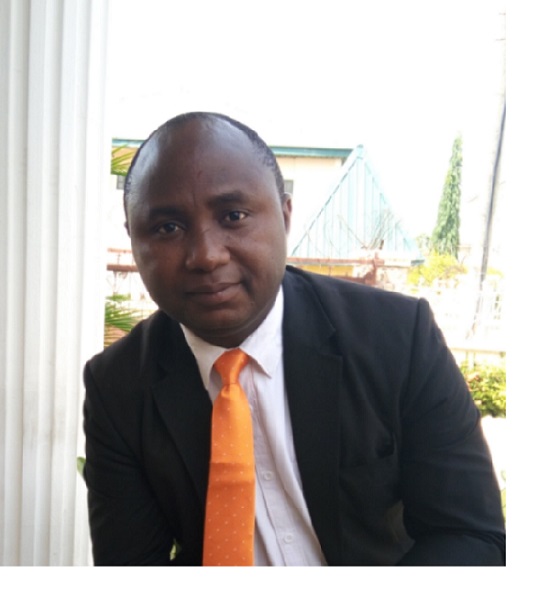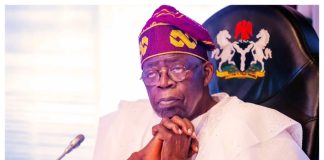One significant thing the victory of Donald Trump on November 20, 2016, had done to democracy and information, is in raising the bar of public scrutiny of what comes out of the media. The Cable News Network, CNN, which has been tirelessly leading the “taint-Trump-victory” onslaught, had wittingly and unwittingly misjudged the outcomes of the US Presidential election in a series of “contrived opinion polls,” before the election. But useful lessons have been learnt by the American public and global audience about seeking a second opinion or critically appraising information.
In Nigeria, the public is becoming more and more aware, and nothing can better describe the growing sensitivity of Nigerians to happenings around them than the latest controversies that dogged an award presented by the Africana Diaspora group to President Muhammadu Buhari. A section of the president’s media team had attempted to disingenuously weave the name of Martin Luther King Jnr. around the profile of the award, but this was successfully controverted in the social media space.
I have found out that there is a deliberate distortion of information concerning the processes involved in the repatriation of the $321 million Abacha loot recovered from some foreign countries, back to Nigeria. At the back of this misinformation, is the worsening inter-agency disagreement between the Economic and Financial Crimes Commission (EFCC) and the Attorney-General’s office, which has culminated in outright envy and rivalry. Unfortunately, the unsuspecting public has become the victim of a contrived narrative weaved around certain issues between the two.
First, there is something we must know: the Nigerian anti-corruption crusade has unraveled big time; and, the people deserve to see through the chicanery that usually unfolds under different guises. For any discerning observer, it should not be too difficult to figure out the presence of a back-end cartel, who so far, has succeeded in taking “personal or group” ownership of the “anti-graft business”, while surreptitiously pulling the strings, using the civil society and media most especially, to sway the unsuspecting public.
Nigerians should probe deeper to know that at the centre of the controversies surrounding the recovered loot is the “jealousy” that the Nigerian lawyers that facilitated the final repatriation of the money are going to be paid $12.8 million or four percent of the $321 million recovered loot. Probably, those behind the media onslaught – some self-acclaimed anti-corruption fighters – had wished they were the ones in charge of the process. And if we look beneath the surface, they are people who have equally been doing internally, similar consultancies directly and indirectly within the system, making undisclosed sums.
Considering the involvement of the World Bank as a third-party in the arrangement that involves the Swiss Federal Council and Nigeria, I think it would be difficult for the office of the AGF to want to do anything suspicious, extra-legal or that is contrary to international or standard best practices in the engagement of consultants for assets recovery. I also want to believe that any suspicious move or underhand dealing in such a high level arrangement would automatically raise a red flag. And I do not think the World Bank can overlook any bogus deal, packaged to reap off a process that it would be monitoring.
There is yet another poser: it is an indication of a contrivance, that the accusers have not found it expedient to petition the World Bank and the Swiss authorities alleging suspicious use of Nigerian consultants to re-loot part of the money, before it was returned to Nigeria. If you want to establish a case of graft or corruption in the use of Nigerian consultants to recover the loots, I do not think it should be by doing a “rofo-rofo” media tango to tarnish their image, when there are better avenues to explore. There are more than two parties involved in the recovery deals – Nigeria, Switzerland and the World Bank, and there are viable options to explore. Act wisely.
Therefore, it cannot be said to be true that Mofrini Crettol & Associates, the foreign consultant engaged by previous administrations in the recovery of the $321 million Abacha loot, had completed the process, and requiring no further legal assistance. For instance, an online platform, Thewhistler.ng had quoted copiously from a letter written by Enrico Mofrini to the AGF, where he expressed rejection, stating that “the percentage of the proposed success fee is far below the one we had offered, and we need to assess whether it would make sense in regard of the time, costs and risk that such proceedings as the ones which are contemplated entails…
“…The cost of asset recovery through civil proceedings, both in common law and civil law jurisdiction(including advance court fee costs that often exceeds 10%), is very high and often represents in excess of 20% to 30% of the value at stake.” The content of this letter does not sound like a process that was completed. I equally consider it a simple wisdom for Mofrini to have known that in this kind of legal assistance for assets recovery, it should ordinarily be the higher the sum involved, the lower the percentage that would be charged because of the latitude to make more and which would be reasonable to cover the costs and risks involved. It would be scandalous, wicked and untenable for any government to part with the 20 percent (representing $64.2 million) of $321 million that Monfrini had asked for. Inexplicable.
On the other hand, I think it is not impossible that those behind this onslaught to force Nigeria to work with Mofrini, might actually be the people trying to swindle the country through the back door, using a foreigner. This kind of conspiracy happens every day around the world. We, the Yoruba, aptly describe it as “Aitete m’ole, ole n’m’oloko,” – the literal interpretation is: ‘because of the delay in arresting the farm thief, the thief is trying to call the owner of the farm the thief’. It is further explicated thus: when someone is quickly accusing another of doing something wrong when s/he has just done that wrong thing.
I will not be surprised, if in future, we are able to discover that there was a secret partnership between Monfrini and some Nigerians over the recovery of Abacha loot. There is no justifiable reason for the accusers to be selling half-truth to the public simply because of envy. If you ask them, why should an agency like the EFCC be using consultants when it has workers collecting salaries in its establishment, they are likely to defend it; all because of vested interest.
May be I should also ask them, what is the function of the Presidential Advisory Committee Against Corruption (PACAC), when there is the office of the AGF? The public must see through the unnecessary media alarms over the $321 million loot recovery. It is important for Nigerians to know that the cacophony of noise about the loot is not in their interest or about them. It is a case of envy and “their interest.”
What I intend to add at this point is my advice to the federal government that the physical projects that will be executed with this recovered loot should bear stickers depicting the profile of the money, like the projects executed with Sukuk funds, marked with Sukuk concrete stickers. This is good for the anti-corruption crusade.










